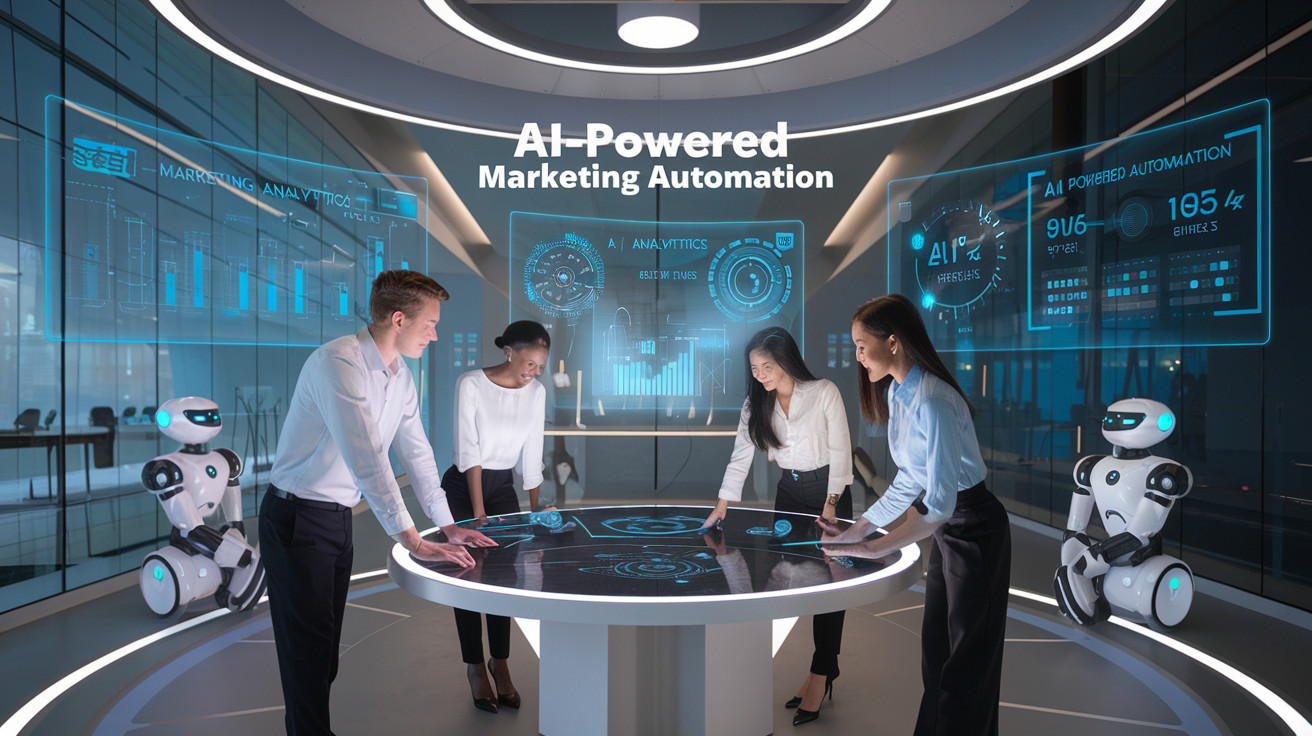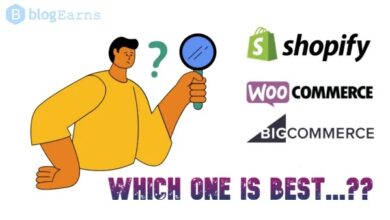How To Supercharge Your Marketing Strategy with AI Automation
Are you struggling to keep up with the ever-evolving marketing landscape? 🤔 In today’s fast-paced digital world, staying ahead of the competition can feel like an uphill battle. But what if there was a way to supercharge your marketing strategy and leave your rivals in the dust?
Enter AI automation – the game-changing technology that’s revolutionizing the way businesses approach marketing. By harnessing the power of artificial intelligence, you can streamline your processes, boost efficiency, and unlock unprecedented levels of personalization. But how exactly does AI automation work, and what can it do for your business?
In this blog post, we’ll dive deep into the world of AI automation and intelligent automation (IA), exploring their benefits, applications, and the exciting future that lies ahead. From understanding the basics to uncovering cutting-edge use cases, we’ll equip you with the knowledge you need to transform your marketing strategy and stay ahead of the curve. So, buckle up and get ready to discover how AI automation can take your marketing efforts to new heights! 🚀

What is AI automation?
AI automation refers to the use of artificial intelligence technologies to perform tasks and processes with minimal human intervention. This cutting-edge approach combines machine learning algorithms, natural language processing, and advanced analytics to streamline operations and enhance decision-making in various industries, including marketing.
Key Components of AI Automation
- Machine Learning: Algorithms that learn from data and improve over time
- Natural Language Processing: Ability to understand and generate human language
- Predictive Analytics: Forecasting future trends based on historical data
- Robotic Process Automation: Software robots that perform repetitive tasks
AI Automation vs. Traditional Automation
| Feature | AI Automation | Traditional Automation |
|---|---|---|
| Adaptability | Learns and improves | Fixed programming |
| Decision-making | Complex, data-driven | Rule-based |
| Data handling | Can process unstructured data | Requires structured data |
| Scalability | Highly scalable | Limited scalability |
AI automation in marketing goes beyond simple task automation. It enables marketers to:
- Personalize customer experiences at scale
- Optimize marketing campaigns in real-time
- Predict customer behavior and preferences
- Automate content creation and curation
- Enhance customer segmentation and targeting
By leveraging AI automation, businesses can supercharge their marketing strategies, making them more efficient, effective, and responsive to customer needs.

What is intelligent automation (IA)?
Intelligent automation (IA) represents the next evolution in AI-powered marketing strategies, combining artificial intelligence, machine learning, and robotic process automation to create sophisticated, self-learning systems. Unlike traditional automation, IA can handle complex tasks, make decisions, and continuously improve its performance.
Key Components of Intelligent Automation
- Artificial Intelligence (AI)
- Machine Learning (ML)
- Robotic Process Automation (RPA)
How IA Differs from Traditional Automation
| Feature | Traditional Automation | Intelligent Automation |
|---|---|---|
| Decision-making | Rule-based | AI-driven, adaptive |
| Learning capability | None | Continuous improvement |
| Task complexity | Simple, repetitive | Complex, varied |
| Data handling | Structured data only | Structured and unstructured data |
| Scalability | Limited | Highly scalable |
Intelligent automation in business goes beyond simple task execution. It can:
- Analyze customer behavior and predict trends
- Personalize marketing campaigns in real-time
- Optimize marketing workflows automatically
- Generate insights from vast amounts of data
By leveraging IA, marketers can create more efficient, data-driven, and personalized campaigns. This technology not only streamlines operations but also enhances decision-making processes, allowing businesses to stay competitive in the rapidly evolving digital landscape.

How AI Automation Benefits Businesses
AI automation is revolutionizing the way businesses operate, offering a wide array of advantages that can significantly boost performance and competitiveness. Let’s explore the key benefits of implementing AI automation in your business:
A. Enhanced Productivity
AI automation streamlines workflows and eliminates repetitive tasks, allowing employees to focus on higher-value activities. This leads to:
- Increased output
- Faster task completion
- Improved accuracy in routine processes
B. Sentiment Mining
AI-powered sentiment analysis tools can:
- Monitor brand perception across social media
- Analyze customer feedback in real-time
- Identify emerging trends and customer preferences
C. Cost-efficiency
By automating processes, businesses can:
- Reduce labor costs
- Minimize errors and associated expenses
- Optimize resource allocation
D. Competitive Advantage
AI automation provides businesses with:
- Advanced data analytics capabilities
- Personalized customer experiences
- Faster decision-making processes
E. Scalability
AI systems can easily scale to accommodate:
- Increased data volumes
- Growing customer bases
- Expanding product lines
F. Risk Management and Compliance
AI automation enhances risk management by:
- Detecting fraud patterns
- Ensuring regulatory compliance
- Predicting potential issues before they occur
| Benefit | Impact on Business |
|---|---|
| Enhanced Productivity | Increased output, faster task completion |
| Sentiment Mining | Real-time customer insights, trend identification |
| Cost-efficiency | Reduced labor costs, minimized errors |
| Competitive Advantage | Advanced analytics, personalized experiences |
| Scalability | Adaptability to growth and increased demands |
| Risk Management | Improved fraud detection, regulatory compliance |
By leveraging AI automation, businesses can optimize their operations, make data-driven decisions, and stay ahead in today’s competitive landscape. Next, we’ll delve into how AI automation works to deliver these impressive benefits.

How AI Automation Works
AI automation works through a series of interconnected steps that transform raw data into actionable insights and automated processes. Let’s explore each step in detail:
Step 1: Data Collection
The first crucial step in AI automation is gathering relevant data from various sources. This can include:
- Customer interactions
- Sales data
- Social media metrics
- Website analytics
Step 2: Data Preparation
Once collected, the data needs to be cleaned and organized. This involves:
- Removing duplicates and errors
- Standardizing formats
- Labeling data for machine learning
Step 3: Training the Model
With prepared data, the AI model is trained using machine learning algorithms. This process involves:
- Selecting appropriate algorithms
- Feeding labeled data into the model
- Adjusting parameters for optimal performance
Step 4: Data Processing
The trained model processes new data to generate insights and automate tasks. This includes:
- Analyzing patterns and trends
- Making predictions
- Triggering automated actions
Step 5: Continuous Learning
AI models improve over time through continuous learning:
- Feedback loops incorporate new data
- Models are retrained periodically
- Performance is monitored and optimized
| Step | Purpose | Key Activities |
|---|---|---|
| Data Collection | Gather information | Sourcing from various channels |
| Data Preparation | Clean and organize | Standardizing and labeling |
| Model Training | Create AI algorithm | Feeding data, adjusting parameters |
| Data Processing | Generate insights | Analyzing, predicting, automating |
| Continuous Learning | Improve performance | Incorporating feedback, retraining |
Now that we understand how AI automation works, let’s explore its various applications in marketing and business.

What are the applications of AI automation?
AI automation has revolutionized various industries, transforming how businesses operate and interact with customers. Let’s explore some key applications:
A. Marketing and advertising
AI-powered marketing automation tools have become indispensable for modern marketers. These tools can:
- Analyze customer data to create personalized campaigns
- Optimize ad targeting and placement
- Predict customer behavior and preferences
| AI Marketing Tool | Function |
|---|---|
| Chatbots | Customer engagement |
| Predictive analytics | Campaign optimization |
| Content generation | Personalized messaging |
B. Robotic process automation
RPA streamlines repetitive tasks, improving efficiency and reducing errors. Common applications include:
- Data entry and processing
- Invoice management
- Inventory tracking
C. Business process management
AI automation enhances BPM by:
- Identifying process bottlenecks
- Suggesting workflow improvements
- Automating decision-making
D. Customer experience
AI-driven tools improve customer experience through:
- Personalized product recommendations
- Dynamic pricing strategies
- Tailored content delivery
E. Customer service
AI automation revolutionizes customer service with:
- 24/7 chatbot support
- Intelligent ticket routing
- Sentiment analysis for better issue resolution
F. Conversational AI
Advanced natural language processing enables:
- Voice assistants for hands-free interactions
- Multilingual customer support
- Emotion detection in customer interactions
With these diverse applications, AI automation is reshaping how businesses operate and interact with customers. Next, we’ll explore the future of intelligent automation and its potential impact on various industries.

The future of intelligent automation
As we look ahead, the future of intelligent automation in marketing is poised to revolutionize the industry. AI-driven technologies will continue to evolve, offering even more sophisticated solutions for businesses to streamline their marketing efforts and drive better results.
Emerging trends in AI marketing automation
- Hyper-personalization: AI will enable marketers to create highly personalized experiences for individual customers at scale.
- Predictive analytics: Advanced machine learning algorithms will provide more accurate forecasts of customer behavior and market trends.
- Autonomous decision-making: AI systems will become capable of making complex marketing decisions with minimal human intervention.
- Voice and visual search optimization: As these technologies grow, AI will play a crucial role in optimizing content for voice and image-based searches.
Impact on marketing roles and skills
The rise of intelligent automation will reshape marketing roles, requiring professionals to develop new skills:
| Current Skills | Future Skills |
|---|---|
| Data analysis | AI strategy development |
| Content creation | AI-human collaboration |
| Campaign management | Ethical AI implementation |
| Customer segmentation | Advanced data interpretation |
Challenges and opportunities
While the future of intelligent automation in marketing is promising, it also presents challenges:
- Ethical considerations in data usage and AI decision-making
- Balancing automation with human creativity and empathy
- Ensuring data privacy and security in increasingly automated systems
- Adapting to rapidly evolving AI technologies and tools
Despite these challenges, the opportunities for businesses to leverage AI in their marketing strategies are immense. As AI continues to advance, it will unlock new levels of efficiency, personalization, and effectiveness in marketing campaigns, ultimately leading to better customer experiences and stronger business outcomes.
Conclusion

AI automation is revolutionizing the marketing landscape, offering businesses unprecedented opportunities to streamline operations and boost efficiency. By leveraging intelligent automation, companies can unlock valuable insights, personalize customer experiences, and make data-driven decisions with remarkable speed and accuracy. From chatbots and predictive analytics to content generation and campaign optimization, the applications of AI in marketing are vast and continually expanding.
As we look to the future of intelligent automation, it’s clear that embracing these technologies will be crucial for staying competitive in an increasingly digital world. By integrating AI automation into your marketing strategy, you can free up valuable time and resources, allowing your team to focus on creative and strategic initiatives that drive growth. Don’t wait to harness the power of AI – start exploring how it can supercharge your marketing efforts today and position your business for long-term success.





